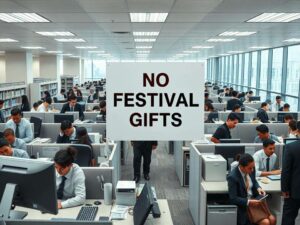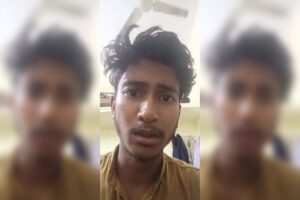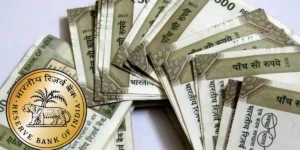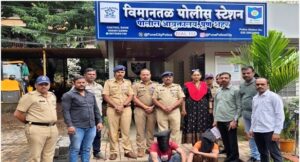Bombay HC Says ‘Use of loudspeakers not essential part of religion,’ Instructs Govt and Police to Act
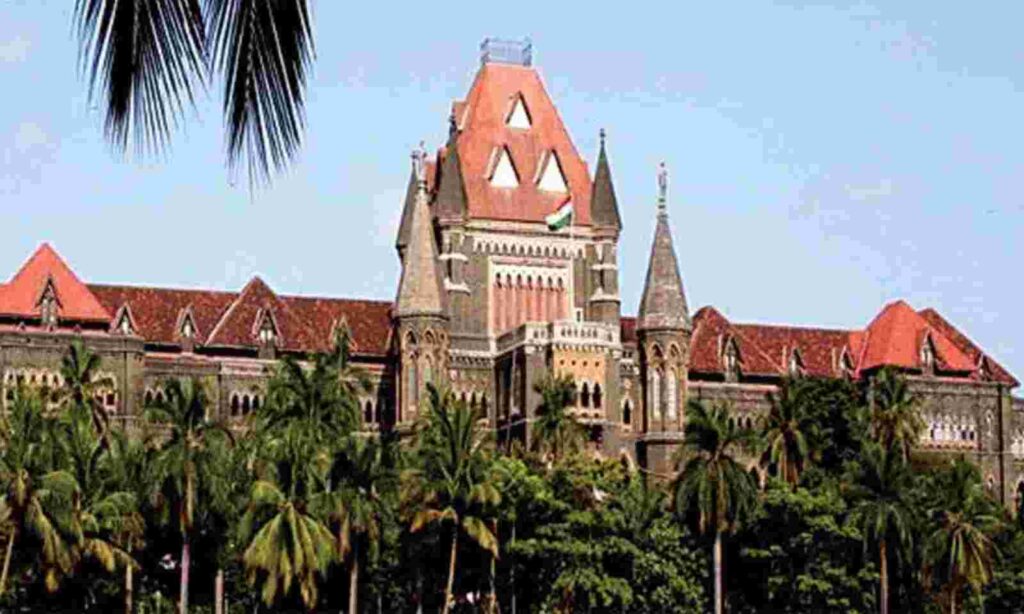
Bombay HC Rejects Plea To Dismiss FIR Against Pune Teacher Over Offensive ‘Operation Sindoor’ WhatsApp Posts
Loudspeakers have long been a fixture in religious practices, serving as a means to amplify voices and messages during gatherings and ceremonies. However, their use has sparked significant debate regarding noise pollution and its impact on surrounding communities. The Bombay High Court noted that the use of loudspeakers is not a fundamental aspect of any religion. On Thursday, it instructed the Maharashtra government to implement a system to manage the volume levels of loudspeakers, public address systems, and other sound-emitting devices used in places of worship or institutions, regardless of the religion. The court also ordered the Mumbai Police to take stringent action against those who violate these regulations and urged the government to consider giving directives to police authorities for setting and automatically fixing volume limits for loudspeakers and public address systems in these locations.
These directives were issued in response to a petition from the Jaago Nehru Nagar Residents Welfare Association and The Shivsrushti Co-op. Housing Societies Association Ltd., representing residents of the Nehru Nagar, Kurla (East), and Chunabhatti areas. The petition claimed that the police had failed to act against the use of loudspeakers and amplifiers by religious establishments, such as mosques, during prohibited hours and above the allowed volume levels.
It referenced the 2016 High Court ruling that provided several instructions for the strict enforcement of the Noise Pollution (Regulations and Control) Rules, 2000. At that time, the High Court stated that “the use of loudspeakers is not an essential part of any religion and therefore protection under Article 25 (freedom of religion) of the constitution is not available” to institutions that violate this rule.
The bench, consisting of Justices Ajey S Gadkari and Shyam C Chandak, emphasized that “Mumbai is a cosmopolitan city, and there are obviously people of different religions in every part of the city… Noise is a significant health hazard in various ways. No one can claim that their rights are infringed upon if they are denied permission to use a loudspeaker. It is in the public interest that such permissions should not be granted… The use of loudspeakers is not an essential part of any religion.”
The bench further stated, “It is the duty of the police authorities and the government to enforce the law by taking all necessary measures as prescribed by law. In a democratic state, it cannot be acceptable for any person or group to refuse to follow the law, while law enforcers sit by as passive observers.”
The petitioners, represented by advocates Kaushik Mhatre, Chinmay Jawale, and Reena Richards, claimed that they had lodged complaints with the Nehru Nagar (Kurla East) and Chunabhatti police stations regarding noise pollution at high volume around 5 am near mosques and madrasas. They noted that during festivals, loudspeakers are used until 1:30 am.
Despite multiple complaints highlighting health issues and the infringement of residents’ fundamental right to personal liberty, the police authorities “blatantly ignored” these concerns, which led the residents to approach the High Court, as stated in the plea.
The plea requested that the Chunabhatti and Nehru Nagar police stations be directed to register FIRs against those violating the Noise Pollution Rules and the provisions of the Protection of Environment Act. It also sought action against the zonal Deputy Commissioner of Police (Zone VI) and local police officers for failing to fulfill their duties.
According to noise pollution regulations, the permissible decibel limit in residential areas is a maximum of 55 decibels during the day and 45 decibels at night. However, the 2023 affidavit from the Deputy Commissioner of Police (DCP) indicated that the decibel levels at the two mosques in question exceeded 80 decibels.
The High Court emphasized that when one or more religious places are using loudspeakers or public address systems (PAS), the noise levels should be assessed based on the cumulative sound from all devices in use, rather than just the individual ambient air quality limits of 55 decibels during the day and 45 decibels at night.
The bench acknowledged that people typically do not raise complaints until the noise becomes unbearable and disruptive. It instructed the Mumbai Commissioner of Police (CP) to ensure that all police officers utilize decibel level measuring mobile applications to monitor noise levels and to seize loudspeakers or other equipment that produce noise in violation of the law.
Furthermore, the court highlighted the importance of protecting the identities of complainants to prevent them from becoming targets of retaliation or hostility. Initially, the police can issue warnings to the offenders, but in cases of repeated violations, they are authorized to impose fines on the relevant trusts or organizations under the Maharashtra Police Act and caution them about potential strict actions for further offenses. If violations continue, the police are directed to seize the loudspeakers and may even cancel the licenses granted to institutions for using such equipment.





